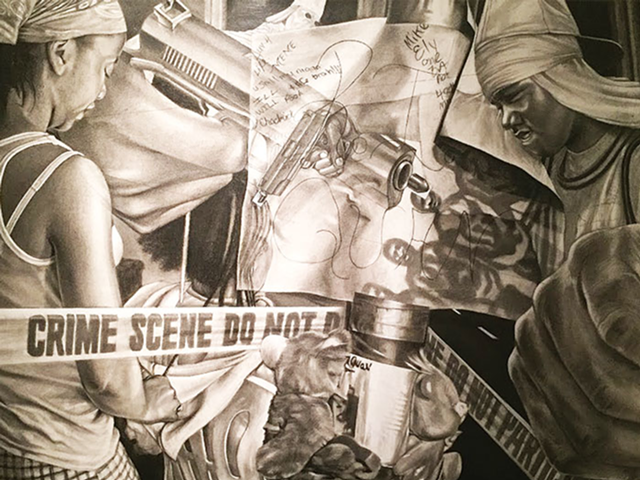In November I was in New York City for a gathering of the American Theatre Critics Association. I saw five Broadway shows, listened to some informative panel discussions and attended a luncheon at Sardi’s with an array of Broadway performers. (I sat next to Michael Cerveris, winner of a 2015 Tony Award.)
Predictably, the panels focused theater in New York City. But since that’s where numerous shows are first produced or have productions that gain national attention leading to tours and regional staging — conversations were certainly relevant to Cincinnati’s theater scene.
Most pertinent from my perspective was a panel addressing the question, “How Can We Achieve Parity for Women in Theater?” It featured three highly regarded and passionate advocates: playwright Marsha Norman, who won a Pulitzer Prize for ’night, Mother and a Tony Award for The Secret Garden, a show Cincinnati Playhouse staged back in September; playwright Caridad Svich, winner of a 2012 Obie Award for Lifetime Achievement who premiered Alchemy of Desire/Dead Man’s Blues at the Playhouse in 1994; and Lisa McNulty, leader of the Women’s Project Theater, America’s oldest and largest company dedicated to developing, producing and promoting the work of female theater artists at every stage of their careers.
They talked about a topic on which I have written several columns — the challenges women playwrights face. Since 2010, Norman has led an initiative, the Lilly Awards, honoring the work of women in American theater. Part of that endeavor is “the count,” a data collection assessing the number of productions across America of plays by women — over three theater seasons (2011-2014), just 22 percent were written by women. As Norman told us, “If life worked like the theater, four out of five things you had ever heard would have been said by men.”
The feisty Norman pointed out that plays written by men tend to be “about men in the world or sad women or women going mad.” She remarked that the 2015 musical theater Tony winner, Fun Home, was for the first time the product of an all-female team: composer Jeanine Tesori and playwright Lisa Kron. (Cartoonist Alison Bechdel’s “graphic memoir” is the show’s source.)
Norman said theaters achieve diversity when artistic directors choose plays by diverse writers. I’m pleased to remind Cincinnati theater-goers that our theaters are doing their part, especially the Cincinnati Playhouse. We saw Laura Eason’s Sex with Strangers in October; early next year the Playhouse presents the world premiere of Karen Zacarias’ Native Gardens and Lauren Gunderson’s new work, The Revolutionists, as well as a revival of Theresa Rebeck’s Bad Dates in May. In fact, half the plays in the current season, as chosen by Artistic Director Blake Robison, are by women. He’s keeping the Playhouse ahead of the parity curve.
At Ensemble Theatre Cincinnati in May, we’ll see Violet from 1997. Another show with music by Tesori, it’s about a young woman coping with a disfigurement that has impacted her sense of self-worth. Staged by ETC’s D. Lynn Meyers, it’s another example of female perspectives shedding insights on everyday life.
My first Broadway show during this trip was Fun Home, and I can offer an enthusiastic second to its surprising Tony Award. (It beat the odds-on favorite, An American in Paris, a gorgeous dance-based show that I also saw during my stay. It was beautiful — but Fun Home is the production that will stick with me.)
Bechdel’s memoir is brought to life by Kron’s script and Tesori’s music. Three actors portray the artist — as a spirited eight-year-old living with her domineering and closeted gay father (the role that earned Cerveris his Tony), as a nervous college student coming to terms with being a lesbian, and as the show’s narrator, the established cartoonist at age 43. All three are often onstage simultaneously, interacting with Alison’s family and friends. It’s an insightful and sometimes amusing coming-of-age story, but also a painful exploration of how parents impact their children for better or worse. (In Fun Home, it’s for better and worse).
I also saw the amusing Something Rotten, a musical send-up of Shakespeare and Elizabethan theater; Hand to God by Robert Askins, perhaps the most hilarious and disturbing employment of puppets I’ve ever witnessed; and Simon Stephens’ 2015 Tony Award-winning adaptation of Mark Haddon’s novel, The Curious Incident of the Dog in the Night-Time, about a high-functioning autistic boy in London struggling with his parents’ unhappy divorce.
CONTACT RICK PENDER: [email protected]






